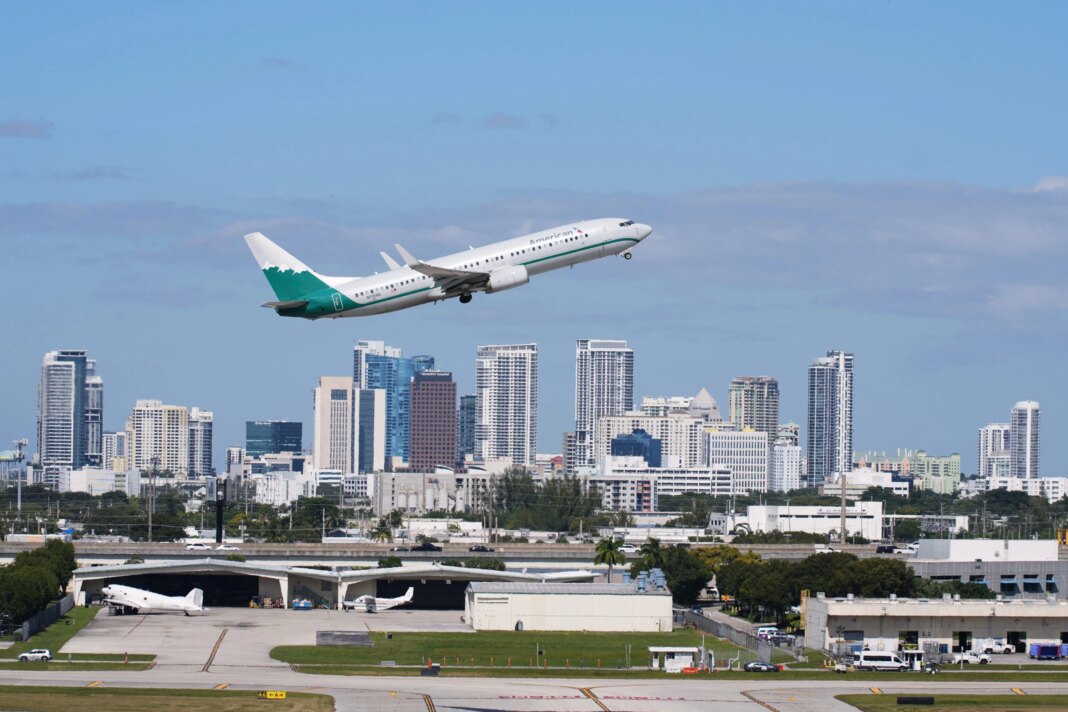Flight Disruptions and Bipartisan Action Following the Government Shutdown
The recent disruption of air travel during the record government shutdown that concluded last week has spurred an unusual yet commendable act of bipartisanship in Washington. In a collaborative effort, congressional representatives from both sides of the aisle have introduced legislation aimed at ensuring that air traffic controllers receive compensation during any future shutdowns. This emerging consensus highlights the urgency to address the vulnerabilities within the aviation sector that became starkly apparent during the lapse in government funding.
Key Features of the Proposed Legislation
The newly proposed bill intends to secure funds for air traffic controllers’ salaries, operational expenses, and various Federal Aviation Administration (FAA) initiatives by tapping into a little-used flight insurance fund. Established in the wake of the September 11 attacks, this fund currently holds approximately $2.6 billion. The bill’s sponsors, including leading Republicans and Democrats from the House Transportation and Infrastructure Committee, believe that utilizing this existing financial resource could make the legislation more palatable compared to other proposals, as it would help to mitigate potential costs associated with paying government employees during funding lapses.
According to U.S. Rep. Sam Graves of Missouri, the Republican chairman of the committee, this initiative is not just about funding; it’s about ensuring safety. “We all saw that the system can be vulnerable when Congress can’t get its job done,” Graves emphasized. This statement reflects the wider sentiment that controllers, facing one of the most high-pressure jobs, should not suffer due to governmental inefficiencies.
Legislative Landscape and Challenges
Despite the introduction of this bipartisan bill, its chances of passing before the next government funding deadline at the end of January remain uncertain. Historically, other legislative proposals intended to resolve the pay issues for essential aviation workers during shutdowns—such as those introduced by U.S. Sen. Jerry Moran of Kansas—have not gained sufficient traction. Sen. Moran’s Aviation Funding Stability Act, which would allow the FAA to draw from the Airport and Airway Trust Fund, is one such proposal that has repeatedly surfaced in Congress since the 2019 shutdown.
The challenges related to the funding of air traffic controllers are not trivial. Legislative proposals often aim for measures that would permit the FAA to utilize funds without incurring high costs. The new bill specifically seeks to limit expenditures by stipulating that if the flight insurance fund dips below $1 billion, disbursements would cease, thereby allowing for continued FAA operations for approximately four to six weeks.
The Pressure on Air Traffic Controllers
The focus on air traffic controllers is critical, particularly due to the severe staffing shortages that already exist within the FAA. During shutdowns, when controllers are required to work without pay, many begin to call out due to financial stress, exacerbating the staffing crisis. The implications of this shortage can manifest in various ways, including significant flight delays and cancellations.
During the recent shutdown, the FAA reported that delays reached alarming levels, prompting the agency to take unprecedented action by instructing airlines to cut scheduled flights at 40 busy airports nationwide. This decision underscores the delicate balance that must be maintained between operational capacity and employee welfare within the aviation system.
Historical Context of the Insurance Fund
The flight insurance fund at the center of the proposed legislation was established when airlines struggled to obtain coverage post-9/11. At that time, the fund provided vital financial backing to airlines, enabling them to operate under a stable insurance environment. However, as the airline insurance market stabilized by the early 2010s, Congress allowed the insurance program to expire by the end of 2014, leaving the fund primarily for claims arising from government commandeering of aircraft for military use.
The last recorded claim was made following the U.S. withdrawal from Afghanistan in 2021, after which the fund has continued to accrue interest and grow. This resource now presents an opportunity for lawmakers seeking to safeguard essential aviation services during potential future government shutdowns.
Conclusion
The current bipartisan efforts to ensure the financial stability and operational integrity of the aviation system reflect an important moment in congressional collaboration. As lawmakers navigate a complex legislative landscape, the impact of their decisions will resonate far beyond the halls of Congress, affecting travelers and the aviation industry at large.



